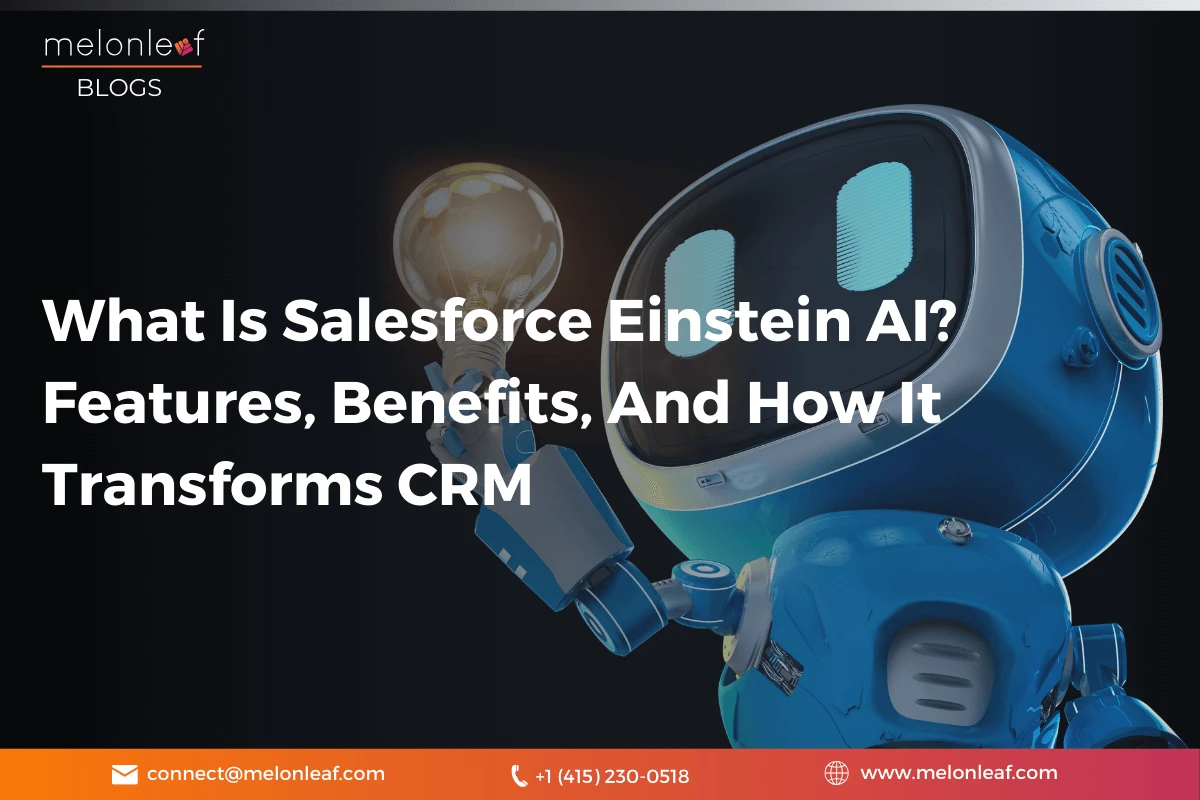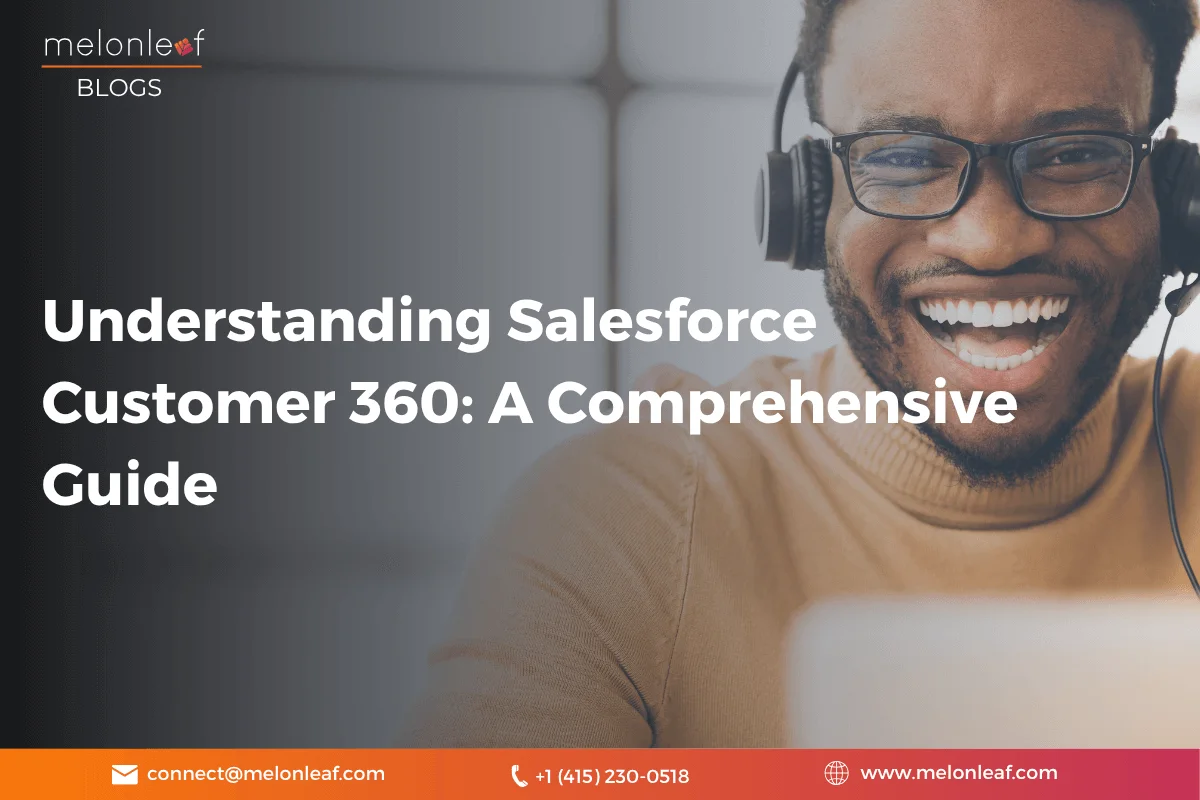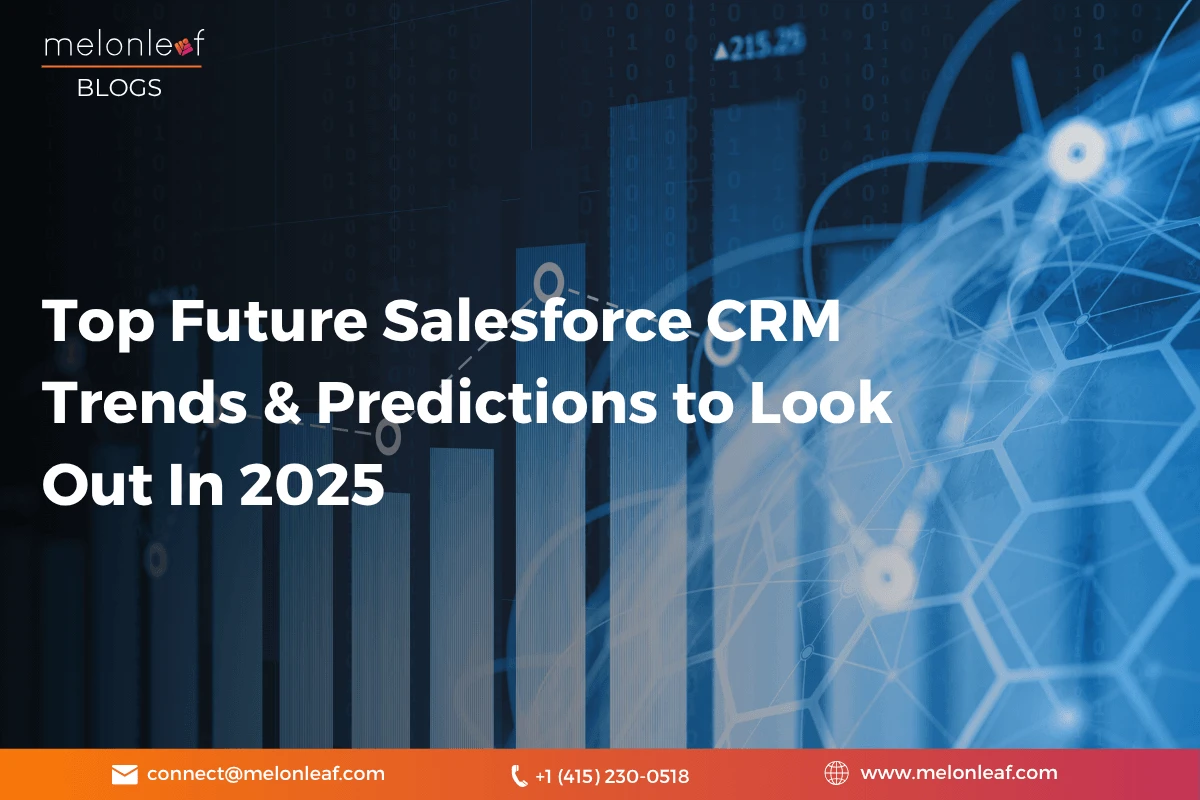
Picture your company achieving maximum marketing efficiency without the need for extra hours or excessive workloads. Imagine your marketing team equipped with comprehensive marketing knowledge, capable of creating highly effective campaigns backed by valuable insights. This is where Salesforce Marketing Cloud, the world’s leading marketing platform, enters the scene.
Salesforce Marketing Cloud is the key to controlling and overseeing all of your marketing efforts, from monitoring social media accounts to executing customized email campaigns, and from increasing brand exposure to improving overall customer experience. It is critical to recognize that the connection between businesses and their consumers is always changing. To thrive, you must provide a seamless client experience that meets their demands exactly as they wish.
Understanding what Salesforce Marketing Cloud, the first step is merely; the true value lies in comprehending the benefits it can bring to your business. In this complete Salesforce Marketing Cloud guide, we will take you on an in-depth journey through the world of Salesforce Marketing Cloud, delving into its advantages, product offerings, and overarching significance. When implemented effectively, these elements can collectively usher in a positive transformation for your business.
So, without further delay, let’s embark on a comprehensive exploration of Salesforce Marketing Cloud and uncover all the nuances that make it an indispensable asset for your marketing strategy.
What Is Salesforce Marketing Cloud?
Known as a customer relationship management (CRM) software provider, Salesforce Marketing Cloud offers a comprehensive digital marketing platform. By connecting with customers more customized and data-driven across a variety of digital platforms, it enables businesses and organizations to enhance customer engagement.
Marketers can plan, execute, and assess marketing campaigns using Salesforce Marketing Cloud’s tools and features across a range of channels, including email, mobile, social media, advertising, and the web. With it, marketing operations can be automated, tailored content can be created, and important customer data can be gathered to improve target marketing.
Key Components of Salesforce Marketing Cloud
Email Studio
This module facilitates the creation and management of email marketing campaigns. It offers features for designing and sending personalized email messages, monitoring email performance, and ensuring deliverability.
Social Studio
Social Studio enables businesses to manage their social media presence effectively. Marketers can schedule and publish social media content, monitor conversations, and gain insights into social media performance.
Mobile Studio
Mobile Studio focuses on mobile marketing, allowing for the creation of SMS and push notification campaigns. Marketers can reach customers on their mobile devices with personalized messages.
Advertising Studio
This component helps in managing and optimizing advertising campaigns across various channels, ensuring that marketing efforts are consistent and coordinated.
Web Studio
Web Studio is designed to create and manage web content and pages. It supports web personalization and tracking to enhance the online customer experience.
Journey Builder
Journey Builder is a visual tool that allows marketers to create customer journeys across channels. It helps automate and optimize interactions based on customer behavior and data.
Analytics and Reporting
It gives marketers the ability to measure campaign performance, track key performance indicators (KPIs), and make data-driven decisions using robust analytics and reporting features.
Personalization and AI
Platform users benefit from personalized experiences powered by artificial intelligence (AI). Customer engagement and conversion rates are increased by tailoring content and messages based on data.
Why You Should Utilize Salesforce Marketing Cloud for Your Business
Email Marketing Automation
Feature: Salesforce Marketing Cloud provides powerful email marketing automation capabilities that enable you to create, schedule, and deliver highly personalized emails to your target audience.
Benefits: By automating processes like list segmentation, email scheduling, and follow-up communications, this tool not only simplifies the email marketing process but also increases productivity. Automation guarantees that your emails are delivered at the most appropriate times, resulting in improved open rates, click-through rates, and conversion rates.
Multi-Channel Marketing
Feature: Salesforce Marketing Cloud provides multi-channel marketing, allowing you to communicate with clients via email, social media, SMS, and digital advertising.
Benefits: By using many channels, your marketing initiatives become more adaptable, allowing you to reach a larger audience. Customer familiarity and trust are increased when messaging and branding are consistent across channels. Furthermore, it gives a consistent customer experience regardless of how and where your audience interacts with your business.
Data and Analytics
Feature: Salesforce Marketing Cloud provides advanced data analytics and reporting tools that offer in-depth insights into campaign performance, customer behavior, and return on investment.
Benefits: Access to detailed analytics empowers you to make data-driven decisions. You can measure the effectiveness of your marketing campaigns, track key performance indicators (KPIs), and adapt your strategies based on real-time data. This results in more efficient and effective marketing campaigns, ultimately boosting your ROI.
Journey Builder
Feature: Journey Builder is a sophisticated visual tool that allows you to design and automate customer journeys based on individual behaviors and interactions.
Benefits: This feature enables you to create complex, highly personalized customer journeys that respond to individual customer actions and preferences. As a result, you can nurture leads more effectively and guide customers through their buying journey, increasing the likelihood of conversion.
Personalization and AI
Feature: Salesforce Marketing Cloud uses artificial intelligence (AI) to offer personalized content and suggestions to your target audience.
Benefit: AI-powered customization enables you to personalize your communications, offers, and content to each unique consumer, resulting in a more engaging and relevant experience. This personal touch boosts client engagement, conversion rates, and overall customer happiness, ultimately leading to brand loyalty.
Compliance and Data Security
Feature: Salesforce Marketing Cloud places a premium on data protection and compliance with international requirements like GDPR and CAN-SPAM.
Benefits: Complying with data privacy rules not only increases consumer trust, but it also protects your brand’s reputation and lowers the danger of legal and financial fines. This dedication to data protection is critical in today’s climate of increased privacy concerns.
From understanding the numerous benefits of Salesforce Marketing Cloud, it becomes evident that this platform can be a game-changer for your marketing efforts. However, reaping these benefits to their fullest potential necessitates a well-planned and strategic implementation process.
To ensure that your business harnesses the power of Marketing Cloud effectively, let’s transition to discussing the essential steps of its implementation.
These steps will guide you through the process of integrating Marketing Cloud into your marketing strategy, allowing you to unlock the platform’s full potential and achieve your marketing objectives with precision and efficiency.
Step-by-Step Procedure of Salesforce Marketing Cloud Implementation
Assessment and Planning
Begin by thoroughly assessing your organization’s marketing needs and goals. Identify important stakeholders and set clear goals for using Marketing Cloud. Setting expectations, determining the extent of the project, and preparing for resources and money are all part of this step.
Account Setup and Configuration
Set up your Salesforce Marketing Cloud account after the planning is complete. This includes establishing the account, specifying user roles and permissions, and customizing the settings to meet the needs of your organization.
Data Integration
Connect Marketing Cloud to your current customer data sources, such as CRM systems or databases. This guarantees that you have a single perspective of your clients and can successfully personalize your marketing efforts.
Email and Subscriber Data Migration
If you are migrating from another email marketing platform, transfer your email templates, subscriber lists, and historical data to Marketing Cloud. Ensure that your email templates are compatible with the platform’s HTML and CSS standards.
Content Creation
Create and design email templates, landing pages, and content for your marketing campaigns. Marketing Cloud offers various tools to assist with content creation, including Email Studio and Content Builder.
Campaign Setup and Automation
Design and set up your marketing campaigns, including email, social media, and mobile campaigns. Utilize Marketing Cloud’s automation capabilities to schedule, trigger, and automate the delivery of campaigns based on customer behavior and preferences.
Personalization and Segmentation
Leverage the platform’s personalization features to create dynamic and targeted content. Utilize data to segment your audience and deliver highly relevant messaging to different customer groups.
Testing and Quality Assurance
Thoroughly test your campaigns and content to ensure that they render correctly on various devices and email clients. Test links, personalization, and dynamic content to avoid errors.
Training and Onboarding
Train your marketing team and other relevant staff on how to use Salesforce Marketing Cloud effectively. Ensure that they understand the platform’s features and can execute campaigns and monitor performance.
Monitoring and Optimization
Once your campaigns are live, continuously monitor their performance. Use Marketing Cloud’s reporting and analytics tools to assess key metrics, such as open rates, click-through rates, and conversion rates. Make data-driven adjustments and optimizations to improve campaign effectiveness.
Compliance and Data Privacy
Adhere to data protection regulations, such as GDPR and CAN-SPAM, by managing opt-outs, unsubscribe requests, and customer preferences. Ensure that your marketing practices align with legal requirements.
Documentation and Best Practices
Maintain detailed documentation of your Marketing Cloud setup, configurations, and best practices. This documentation helps with troubleshooting and onboarding new team members.
Ongoing Support and Maintenance
Provide ongoing support for your marketing team and address any technical issues that may arise. Stay updated with Salesforce Marketing Cloud releases and updates to take advantage of new features and improvements.
The length of each phase and the complexity of the installation process will be determined by the size, ambitions, and past expertise with the platform of your organization. Working with Salesforce-certified individuals or consultants can assist in ensuring a smooth and effective Salesforce Marketing Cloud setup.
Challenges Salesforce Marketing Cloud Help Resolve
Salesforce Marketing Cloud is a comprehensive platform that can seamlessly address various challenges that businesses commonly face in their marketing efforts. Here are some of the challenges that Salesforce Marketing Cloud can help resolve:
Data Silos and Integration Issues
Challenge: Businesses often struggle with fragmented customer data stored in different systems, making it difficult to create a unified view of their customers.
Solution: Marketing Cloud integrates with various data sources, including CRM systems, to centralize customer data. This integration ensures that marketing campaigns are data-driven and personalized.
Inefficient Email Marketing
Challenge: Managing email marketing campaigns manually can be time-consuming and error-prone, leading to inconsistent messaging and lower email engagement.
Solution: Salesforce Marketing Cloud automates email marketing, allowing businesses to create and schedule emails, segment audiences, and personalize content, resulting in more effective and efficient campaigns.
Low Customer Engagement
Challenge: Failing to engage customers with relevant content can result in reduced customer loyalty and lower conversion rates.
Solution: Marketing Cloud’s personalization and journey automation capabilities help deliver highly targeted and engaging content, nurturing customer relationships and driving engagement.
Ineffective Campaign Tracking
Challenge: Businesses often struggle to measure the success of their marketing campaigns and identify areas for improvement.
Solution: Marketing Cloud provides robust reporting and analytics tools, enabling businesses to track key performance indicators, measure ROI, and make data-driven decisions for campaign optimization.
Compliance and Data Privacy
Challenge: Staying compliant with data protection regulations, such as GDPR and CAN-SPAM, can be complex and is a legal necessity.
Solution: Salesforce Marketing Cloud helps businesses manage data privacy and compliance by facilitating opt-outs, managing unsubscribe requests, and ensuring that marketing practices align with legal requirements.
Lack of Cross-Channel Consistency
Challenge: Maintaining a consistent brand image and messaging across multiple marketing channels can be challenging, leading to a fragmented customer experience.
Solution: Marketing Cloud enables businesses to execute coordinated multi-channel campaigns, ensuring that customers receive a consistent and unified brand experience.
Manual and Repetitive Tasks
Challenge: Marketing teams often spend time on manual and repetitive tasks that could be automated, limiting their capacity for strategic planning and creativity.
Solution: Automation features in Marketing Cloud reduce manual efforts, allowing marketing teams to focus on higher-level strategy and creativity.
Customer Journey Complexity
Challenge: Creating and managing complex customer journeys, particularly in multi-channel marketing, can be daunting and error-prone.
Solution: Marketing Cloud’s Journey Builder simplifies the design and automation of customer journeys, ensuring that customers receive the right messages at the right times based on their behavior.
Limited Customer Insights
Challenge: Gaining a deeper understanding of customer behavior and preferences is crucial for creating effective marketing campaigns.
Solution: Marketing Cloud collects and analyzes customer data, providing valuable insights that guide personalized marketing efforts and improved customer experiences.
Business That Can Leverage The Power Of Salesforce Marketing Cloud
Salesforce Marketing Cloud is a flexible platform that can help a variety of enterprises and sectors. Here are some businesses and organisations that might benefit from Salesforce Marketing Cloud to improve their marketing efforts:
E-commerce and Retail
Salesforce Marketing Cloud can help online retailers and brick-and-mortar businesses create personalised shopping experiences, offer product suggestions, and execute targeted promotions to increase sales and customer loyalty.
B2B Companies:
Business-to-business organizations can leverage Marketing Cloud to nurture leads, automate email marketing, and create personalized content to attract and retain clients.
Healthcare Providers
Healthcare institutions can use Marketing Cloud to send appointment reminders, health information, and personalized communications to patients, improving patient engagement and health outcomes.
Financial Services
Banks, insurance companies, and financial institutions can benefit from Marketing Cloud to deliver personalized financial advice, manage client communications, and enhance customer trust.
Travel and Hospitality
The travel and hospitality industry can use Marketing Cloud to send personalized offers, travel recommendations, and booking confirmations to improve the customer journey.
Nonprofits
Nonprofit organizations can utilize Marketing Cloud to reach donors and supporters, run fundraising campaigns, and keep their audience informed about their initiatives.
Higher Education
Colleges and universities can engage with prospective students, send admission updates, and personalize communications to improve student recruitment and retention.
Automotive Industry
Car manufacturers and dealerships can use Marketing Cloud to send personalized offers, maintenance reminders, and vehicle updates to customers.
Technology Companies
Tech firms can benefit from Marketing Cloud to nurture leads, run targeted advertising campaigns, and send product updates to customers.
Real Estate
Real estate agencies can use Marketing Cloud to send property listings, personalized recommendations, and appointment reminders to potential buyers and renters.
Manufacturing
Manufacturing companies can benefit from Marketing Cloud to nurture B2B relationships, communicate with distributors, and provide personalized product information.
Government and Public Sector
Government agencies can use Marketing Cloud to improve citizen engagement, send personalized updates, and manage public communications effectively.
Professional Services
Law firms, consulting firms, and other professional service providers can use Marketing Cloud to communicate with clients, provide updates, and build client relationships.
How To Choose a Salesforce Marketing Cloud Expert
1. Define Your Goals and Needs
Before you start looking for a Marketing Cloud company, you need have a good grasp on your marketing objectives and requirements. Determine your goals for Salesforce Marketing Cloud, whether they be to improve customer interaction, increase revenue, or streamline marketing processes. This clarity will assist you in identifying a business that specialises in your areas of interest.
2. Assess Experience and Expertise
Look for a Salesforce Marketing Cloud firm with a proven track record of success. Evaluate their experience in working with businesses similar to yours in terms of industry, size, and goals. Check for certifications and expertise in the Salesforce ecosystem, including Marketing Cloud, as this demonstrates their commitment to excellence.
3. Portfolio and Case Studies
Review the firm’s portfolio and case studies to gain insights into their previous projects. Assess the quality of work, the complexity of campaigns, and the results achieved. A strong portfolio is an indicator of their ability to execute successful campaigns.
4. Client References
Request client references from the firm. Speaking with their previous clients can provide valuable insights into the firm’s communication, collaboration, and the impact of their work on businesses. It’s an opportunity to gauge client satisfaction and gain a deeper understanding of the firm’s capabilities.
5. Comprehensive Services
Consider what services the firm offers beyond Salesforce Marketing Cloud. A full-service agency that provides a range of marketing, data analytics, and customer experience services may offer more integrated solutions and better results.
6. Customization and Personalization
Assess the firm’s ability to customize Salesforce Marketing Cloud to meet your specific needs. Personalization is a key strength of the platform, and your partner should be adept at tailoring strategies to your unique audience.
7. Communication and Collaboration
Effective communication and collaboration are critical for a successful partnership. Evaluate the firm’s communication style, responsiveness, and willingness to collaborate with your internal teams.
8. Data Privacy and Compliance
Verify that the firm is well-versed in data privacy regulations, such as GDPR and CAN-SPAM, to ensure that your marketing practices remain compliant.
9. Scalability and Growth
Consider the firm’s ability to scale with your business. As your organization grows, your marketing needs will evolve, so ensure that your chosen partner can adapt and support your growth.
10. Cost and Budget
Discuss the firm’s pricing structure and ensure it aligns with your budget. While cost is a factor, prioritize value and results over the lowest price, as a well-qualified firm can yield a higher return on investment.
11. Support and Training
Inquire about post-implementation support, training, and ongoing services. A good firm should provide training to your team and be available for support and troubleshooting.
12. Contract and Service Level Agreements (SLAs)
Review the contract and SLAs carefully to understand the terms and expectations. Ensure that all important details are clearly outlined, including timelines, deliverables, and reporting.
13. Cultural Fit
Consider the cultural fit between your organization and the Salesforce Marketing Cloud firm. A good match in values, work ethic, and communication style can lead to a smoother and more successful collaboration.
By carefully evaluating these factors and conducting due diligence, you can select a Salesforce Marketing Cloud firm that not only meets your immediate needs but also provides a long-term partnership focused on achieving your marketing objectives and driving business success.
How you can become a Salesforce Marketing Cloud expert
Becoming a Salesforce Marketing Cloud professional is a rewarding path that may lead to a variety of possibilities in digital marketing. Here’s a step-by-step roadmap to become a Salesforce Marketing Cloud expert:
1. Understand the Basics
Begin by gaining a fundamental understanding of Salesforce Marketing Cloud. Explore its features, capabilities, and how it fits into the broader Salesforce ecosystem.
2. Sign Up for Salesforce Trailhead
Salesforce offers a free and comprehensive training platform called “Trailhead.” Sign up for a Trailhead account and explore the available modules and trails related to Marketing Cloud.
3. Complete Marketing Cloud Basics
Start with the “Marketing Cloud Basics” module on Trailhead. This will introduce you to the core concepts, terminology, and functionalities of Marketing Cloud.
4. Explore Trailhead Trails
Progress through the Marketing Cloud trails on Trailhead, which cover various aspects of the platform. This includes email marketing, automation, data management, and more.
5. Salesforce Certifications
Salesforce offers certifications for Marketing Cloud, including the Salesforce Certified Marketing Cloud Email Specialist and Salesforce Certified Marketing Cloud Social Specialist exams. Consider pursuing these certifications to validate your expertise.
6. Practical Experience
Hands-on experience is invaluable. If you have access to a Marketing Cloud instance, experiment with creating email campaigns, automations, and personalization. If not, you can request a Developer Edition from Salesforce for practice.
7. Join the Trailblazer Community
Join the Salesforce Trailblazer Community, specifically the Marketing Cloud group. This is a great place to connect with experts, ask questions, and share knowledge.
8. Online Courses and Training
Explore online courses and training programs offered by Salesforce and third-party providers. These courses often cover more advanced topics and strategies.
9. Real-World Projects
If possible, work on real-world projects. This can be within your organization or by volunteering for nonprofit organizations. Practical experience is key to becoming an expert.
10. Stay Updated
Marketing Cloud is continuously evolving. Stay updated with new features and best practices by following Salesforce blogs, forums, and attending webinars or events.
11. Networking
Network with professionals in the field. Connect with Marketing Cloud experts on LinkedIn and attend Salesforce and marketing events to learn from and collaborate with peers.
12. Read Books and Guides
There are various books and guides available on Marketing Cloud. Reading these can provide in-depth knowledge and insights.
13. Master Data and Analytics
Understanding data and analytics is crucial. Learn how to gather, analyze, and leverage data for effective marketing campaigns.
14. Continuous Learning
The journey to becoming a Marketing Cloud expert is ongoing. Keep learning, experimenting, and adapting to the evolving landscape of digital marketing.
15. Build a Portfolio
As you gain experience, build a portfolio of your work and achievements. This can be valuable when seeking employment or freelance opportunities.
16. Seek Mentorship
Consider finding a mentor who is an experienced Marketing Cloud expert. They can provide guidance, answer questions, and offer career advice.
Becoming a Salesforce Marketing Cloud expert takes time and dedication, but the skills and knowledge you gain are highly valuable in the digital marketing industry. Remember that continuous learning and keeping up with industry trends are essential for maintaining your expertise in Marketing Cloud.
Conclusion
Salesforce Marketing Cloud offers incredible potential for businesses and professionals in the world of digital marketing. Whether you’re seeking the right partner or aiming to become an expert, the key is understanding your needs, staying committed to learning, and building experience. When it comes to finding the ideal Salesforce Marketing Cloud partner, look no further than Melonleaf. Their expertise, track record, and certified team make them a trusted choice for elevating your marketing efforts. Your journey to marketing success starts here, with Melonleaf by your side.
-
Previous Post
12 Top Features Of Salesforce Marketing Cloud
Post a comment Cancel reply
Related Posts
What Is Salesforce Einstein AI? Features, Benefits, And How It Transforms CRM
Think about your daily business operations. Your sales team juggles hundreds of leads, your customer…
Understanding Salesforce Customer 360: A Comprehensive Guide
Managing customer relationships has never been simple. A business may have thousands, or even millions,…
Top Future Salesforce CRM Trends 2025
The world of Customer Relationship Management (CRM) continues to evolve rapidly, and as we move…
Types Of Salesforce License and Costs
Salesforce is a powerhouse in the world of CRM, helping businesses manage customer relationships, streamline…

 About Melonleaf
About Melonleaf Awards
Awards Our Team
Our Team






 Events
Events Webinars
Webinars Blogs
Blogs Press Releases
Press Releases

 Salesforce
Salesforce Alliance Partners
Alliance Partners Healthcare Prowess
Healthcare Prowess Logistics
Logistics Real Estate
Real Estate Automotive Industry
Automotive Industry Education Industry
Education Industry Manufacturing
Manufacturing Media & Entertainmet
Media & Entertainmet Nonprofit
Nonprofit Insurance
Insurance Aerospace & Defence
Aerospace & Defence














